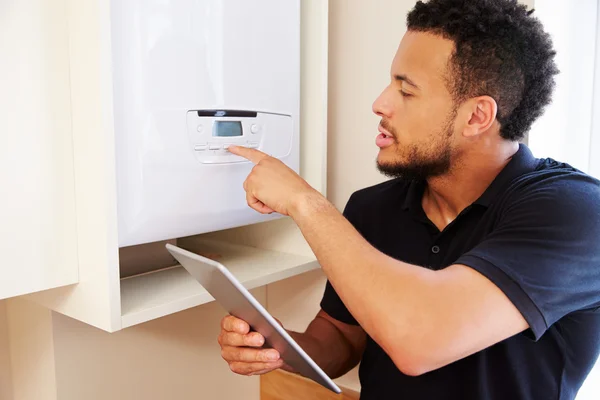The Ultimate Guide To Choosing The Perfect Boiler For Your Australian Home: Say Hello To Comfort
In the quest for the ideal boiler to infuse your Australian home with warmth and comfort, navigating the myriad options can feel like a daunting task. Fear not! Welcome to "The Ultimate Guide to Choosing the Perfect Boiler for Your Australian Home: Say Hello to Comfort." Here, we demystify the process, empowering you to make informed decisions tailored to your unique needs and climate considerations.
From understanding the fundamentals of boiler functionality to unraveling the intricacies of energy efficiency, fuel types, and installation requisites, this guide serves as your compass in the journey towards cozy living spaces. Say farewell to chilly drafts and embrace the epitome of comfort with the perfect boiler for your Australian sanctuary.
Understanding Boiler Basics
How Boilers Work
Boilers operate by heating water, which is then distributed through pipes to radiators, underfloor heating systems, or domestic hot water tanks. As the water circulates, it releases heat, warming the surrounding space or providing hot water for household use. Boilers can be fueled by various sources, including natural gas, electricity, oil, or renewable energy options like solar or biomass. Their efficient heat transfer mechanisms make them indispensable for maintaining comfort in homes across diverse climates.

Types of Boilers
- Combi Boilers: Also known as combination boilers, these units provide both central heating and hot water on demand without the need for a separate hot water cylinder. They're compact and ideal for smaller homes with limited space.
- System Boilers: System boilers work with a hot water cylinder, but unlike conventional boilers, they incorporate most of the components within the unit itself, making installation easier and more space-efficient.
- Conventional Boilers: Also referred to as regular or traditional boilers, these systems require a separate hot water cylinder and cold-water storage tank. They're suitable for larger homes with high hot water demand.
Now that you have a basic understanding of how boilers operate let's move on to the crucial factors to consider when choosing the perfect boiler for your Australian home.
Factors to Consider When Choosing a Boiler
Choosing the right boiler involves evaluating various factors to ensure optimal performance, energy efficiency, and cost-effectiveness for your home.
Climate and Location
Consider the climate and location of your Australian home when selecting a boiler, as these factors significantly impact heating requirements. Regions with colder winters will necessitate boilers with higher heating capacities to ensure adequate warmth. Conversely, homes in warmer climates may prioritize energy-efficient options due to less frequent heating needs. Understanding your local climate and geographic location is key to choosing a boiler that will efficiently meet your heating demands.
Energy Efficiency
Prioritize energy efficiency when selecting a boiler to minimize utility bills and environmental impact. Look for models with high-efficiency ratings, such as those certified by programs like ENERGY STAR. Opting for a boiler with advanced features like modulation technology can further enhance efficiency by adjusting output according to demand. Investing in an energy-efficient boiler not only saves money in the long run but also reduces carbon emissions, contributing to a greener future.

Fuel Type
When considering fuel type for your boiler, assess availability and cost-effectiveness in your area. Natural gas is commonly used in urban areas due to its affordability and widespread availability. For remote locations without access to natural gas, alternatives like LPG, oil, or renewable energy sources may be viable options. Each fuel type has its own pros and cons, so evaluate factors such as availability, efficiency, and environmental impact before making a decision.
Size and Heating Capacity
Ensure the boiler's size and heating capacity match your home's requirements for optimal performance. An oversized boiler can lead to energy wastage, while an undersized one may struggle to meet heating demands. Consult a qualified heating engineer to calculate the appropriate size based on factors like home size, insulation levels, and hot water usage. Choosing the right size and heating capacity ensures efficient operation and maximum comfort in your Australian home.
Installation Requirements
Consider installation requirements when choosing a boiler to ensure compatibility with your home's infrastructure. Some boilers may require additional space for ventilation or flue installation. Check if your existing heating system components are compatible with the new boiler to avoid costly modifications. It's advisable to hire a professional heating engineer Tomlinson Energy to handle installation, ensuring safety and compliance with regulations.
Additional Features to Look For
Beyond the basic considerations, here are some additional features to look for when choosing a boiler:
Modulation Technology
Modulation technology adjusts a boiler's output based on heating demand, enhancing energy efficiency and comfort. By continuously varying the heat output, modulation technology prevents energy wastage and maintains stable indoor temperatures. This feature is particularly beneficial in fluctuating weather conditions, ensuring optimal performance year-round. Boilers equipped with modulation technology offer precise control and significant energy savings compared to traditional models.
Weather Compensation
Weather compensation is a feature that adjusts a boiler's output based on outdoor temperature changes. By accounting for variations in weather conditions, boilers equipped with weather compensation optimize heating efficiency. This technology ensures consistent indoor comfort levels regardless of external temperature fluctuations. With weather compensation, boilers can operate more efficiently, reducing energy consumption and lowering heating costs.
Smart Controls
Smart controls enable remote monitoring and management of your boiler system via smartphone apps or other devices. These advanced features allow for precise temperature adjustments and energy-saving schedules from anywhere. By intelligently optimizing heating cycles and settings, smart controls enhance energy efficiency and comfort. Additionally, smart controls provide valuable insights into energy usage patterns, empowering users to make informed decisions for further optimization.

